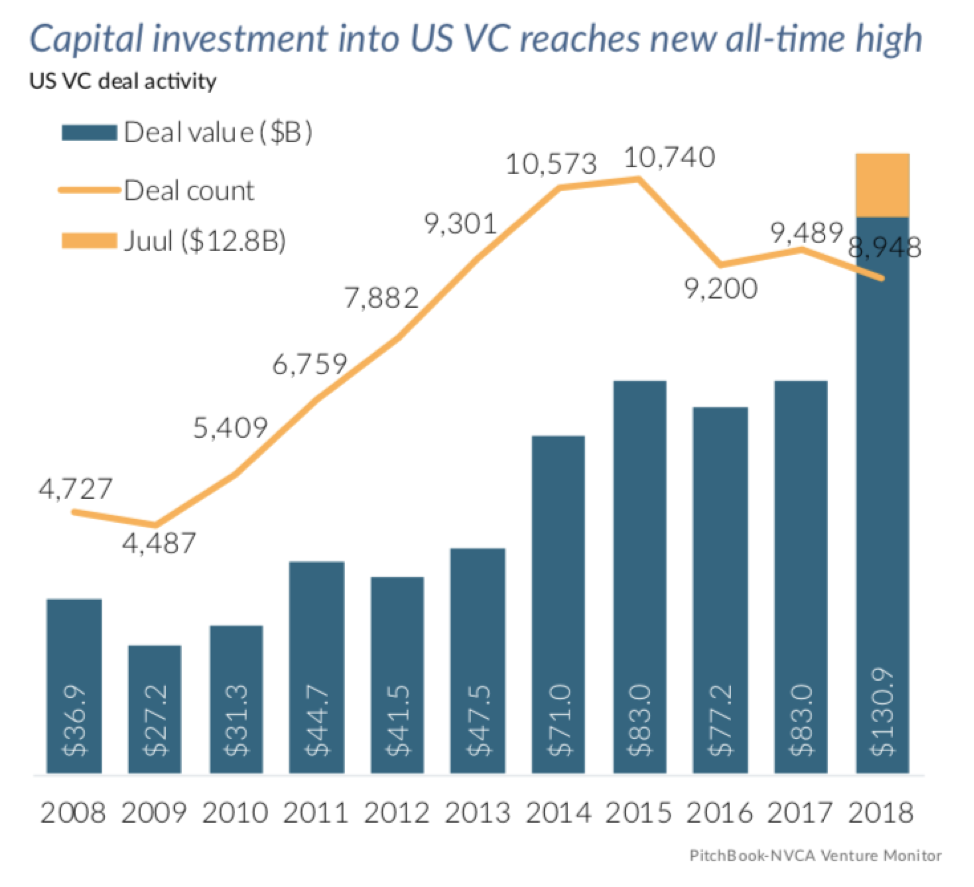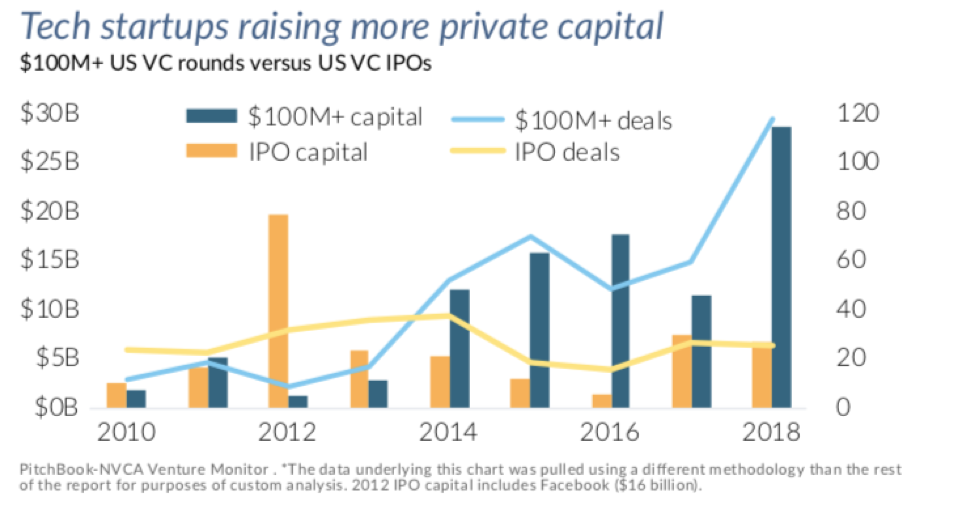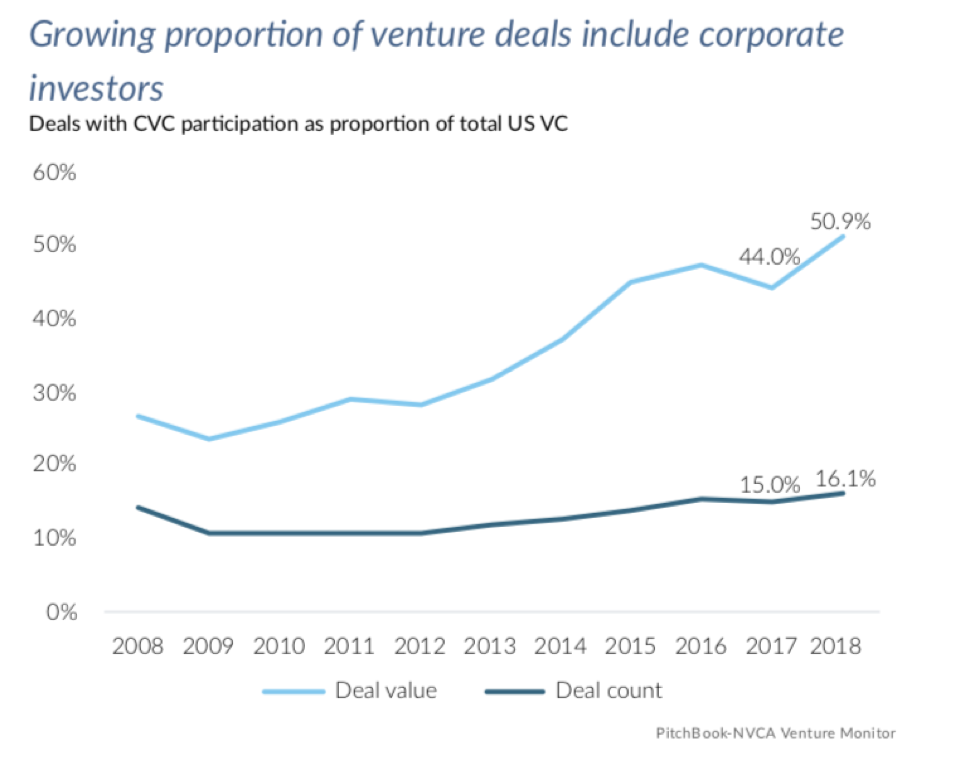Venture capitalists outdid themselves in 2018, spending a record-breaking $130.9 billion, spreading their wealth across 9,000 companies, according to the new Venture Monitor by Pitchbook-NVCA, which said the rise in VC investment for the year was fueled by “late-stage mega-deals”.
In 2000—the crazy dot-com-era—venture capitalists invested over $120 billion but the years in between then and now were rather duller, failing for 17 years to break the $100-billion threshold.

(Click to enlarge)

(Click to enlarge)
And mega-deals (deals over $100 billion) were all the rage:
In other words, it was a banner year for VC investment, and while the deal count was down, the data shows that nearly 62 percent of invested capital came from big deals, $50 million or larger.
According to Pitchbook, “VC-based exit activity in 2018 also displayed great strength”, with M&A activity led by Microsoft’s $7.5-billion acquisition of GitHub and Cisco’s $2.4-billion acquisition of Duo Security. But what really impressed everyone was the opening of what Pitchbook calls the “tech IPO window, which saw the most VC-backed companies enter the public markets since 2014”.
Some key takeaways from the report include what Bob Blee, head of the corporate finance group at Silicon Valley Bank, pinpointed as today’s “far better capitalized” VC-backed companies at the time of exit. Blee notes that in 2010, VC-backed companies going public had $63 million across 4.6 privately-raised funding rounds. In 2018, they had nearly $250 million across 6.5 funding rounds. “In fact, in the past five years, there have been a staggering 443 $100+ million venture rounds compared to 138 IPOs. Related: Tesla Cuts Prices As China Suspends Auto Tariffs
And they’re not just better capitalized, they’re also generating more revenue prior to IPO. In 2010, the average was $92 million (trailing 12-month revenue prior to IPO). In 2018, that average was $182 million.

(Click to enlarge)
And corporates are showing up in droves in venture-capital deals. In 2018, they participated in 1,443 venture deals worth $66.8 billion—up over 83 percent from 2017.

(Click to enlarge)
So what comes next? Will it be another banner year?
Related: 78% Of American Workers Are Living Paycheck To Paycheck
While the report says that the “arms race of mega-deals into startups backed by a growing number of mega-funds will continue” into 2019, it also notes that “the industry will be closely watching public market volatility and its impact on the pipeline of IPOs, as well as any other potential signs of a VC market correction.”
“Investor sentiment surrounding expected IPOs in the first half of 2019 (Uber, Lyft, Airbnb, and Slack) indicates that the IPO window could stay open for at least the near future. But despite these positive signs, the increasing volatility in the public markets, especially in the fourth quarter of 2018, is a dark cloud looming on the periphery of this strong IPO window.”
That dark cloud could take several shapes, from the government shutdown that has now entered its 21st day and threatens to delay planned IPOs, to new foreign investment legislation in the form of FIRRMA, the Foreign Investment Risk Review Modernization Act, which will impact how VCs raise money from foreign LPs.
By Michael Scott for Safehaven.com
More Top Reads From Safehaven.com
















